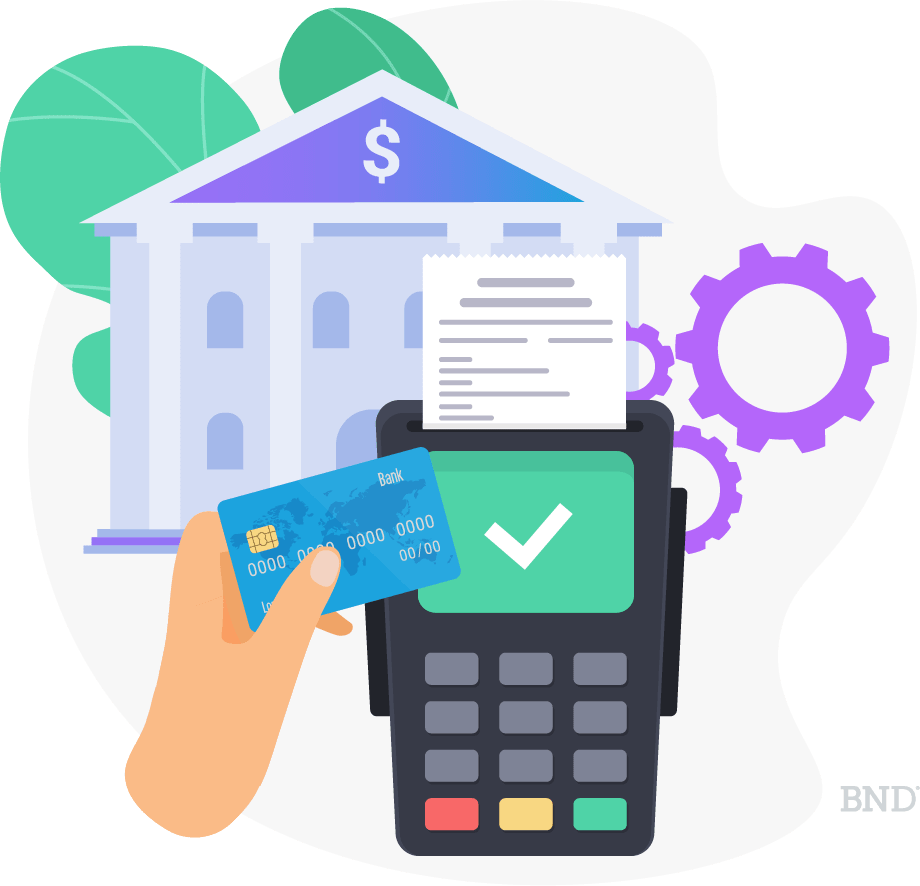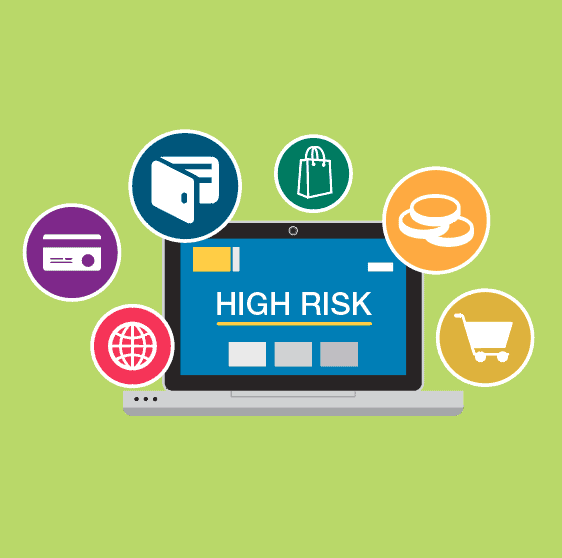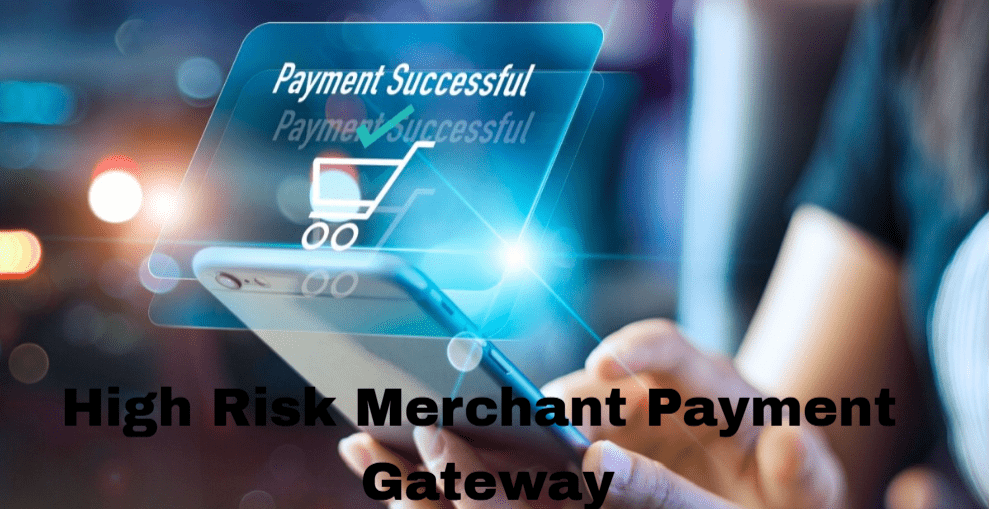AUTHOR : EMILY PATHAK
DATE : 14 – 09 – 2023
A Comprehensive Guide
In the world of online business, one of the key factors that determine success is the ability to accept payments seamlessly. However, for certain industries[1], the process of accepting payments online can be far more complicated. This is where a High Risk Merchant Payment Gateway becomes crucial. These specialized payment gateways help businesses in industries considered “high risk” to manage transactions securely and efficiently.

This guide will explore the concept of high-risk merchant accounts and payment gateways, why certain businesses are considered high-risk, and how a High Risk Merchant Payment Gateway[2] can benefit such businesses.
What is a High Risk Merchant Payment Gateway?
A High Risk Merchant Payment Gateway is a payment processing service designed specifically for businesses in industries that are deemed high risk by financial institution[3]s, payment processors, and credit card companies. These businesses may face higher rates of chargebacks, fraud, or regulatory scrutiny, which makes payment processing more complex.
Unlike standard merchant accounts, which are typically offered to low-risk businesses, high-risk merchant accounts come with additional safeguards and higher fees. A high-risk payment gateway[4] helps mitigate some of these challenges by providing a secure platform for processing payments and ensuring that transactions are handled according to industry standards.
Why Some Businesses Need a High Risk Payment Gateway
Certain industries or business types face elevated risks in comparison to others. These risks are mainly associated with higher chances of chargebacks[5], fraud, and legal issues. As a result, banks and payment processors categorize these businesses as “high risk” and require them to use specialized payment processing services.
Common High-Risk Industries Include:
- Adult Entertainment: Due to the nature of the business, there is a higher likelihood of chargebacks and disputes.
- Online Gambling: Gambling transactions are often closely monitored and can be restricted in certain jurisdictions.
- E-cigarettes & Vaping: Regulatory scrutiny around health and safety has made payment processors more cautious about supporting businesses in this sector.
- Travel and Ticketing: These businesses often deal with high-ticket transactions that can result in chargebacks or cancellations.
- Forex & Cryptocurrency: Due to market volatility and fraud risks, these industries are considered high risk by payment processors.
- Nutraceuticals & Supplements: These industries can face legal and compliance challenges, which increases their risk profile.
For businesses in these industries, a High Risk Merchant Payment Gateway offers the tools and infrastructure needed to ensure secure and efficient payment processing, while also reducing the likelihood of disruptions due to fraud or disputes.
Features of a High Risk Merchant Payment Gateway
A High Risk Merchant Payment Gateway typically comes with specialized features to help businesses manage the unique challenges they face. Some of the common features include:

1. Enhanced Fraud Protection
High-risk businesses are more susceptible to fraud, so a high-risk payment gateway includes advanced fraud detection tools such as real-time transaction monitoring, 3D Secure authentication, and IP geolocation tracking. These features help to detect and prevent fraudulent transactions before they occur.
2. Chargeback Prevention and Management
Chargebacks are a common issue for high-risk businesses, but a High Risk Merchant Payment Gateway provides chargeback management solutions. This includes tools for issuing refunds, handling disputes, and preventing chargebacks through secure payment procedures.
3. Multiple Payment Options
To cater to a broad customer base, high-risk merchant payment gateways often support multiple payment methods, including credit cards, debit cards, e-wallets, and even cryptocurrency. This flexibility ensures that businesses can reach customers across various payment preferences.
4. International Payment Processing
For global businesses, international payment processing is essential. A High Risk Merchant Payment Gateway is designed to process transactions in different currencies, enabling businesses to expand their reach internationally.
5. Compliance with Industry Regulations
High-risk industries often face strict regulations, and non-compliance can lead to penalties or loss of payment processing privileges. A high-risk payment gateway ensures that businesses remain compliant with relevant laws, such as PCI DSS (Payment Card Industry Data Security Standard), anti-money laundering (AML) regulations, and KYC (Know Your Customer) protocols.
How to Choose the Right High Risk Merchant Payment Gateway
Choosing the right High Risk Merchant Payment Gateway is crucial for ensuring smooth and secure payment processing. Here are some important factors to consider:

1. Security Features
Look for a payment gateway with robust security features, such as end-to-end encryption, fraud detection, and secure tokenization. This ensures that sensitive customer information is protected during the payment process.
2. Transaction Fees
Transaction fees for high-risk businesses can be higher than standard merchant accounts, so it’s important to compare fees from different gateways. Make sure to consider the cost per transaction, monthly fees, chargeback fees, and any other associated costs.
3. Customer Support
A reliable customer support team is essential when dealing with payment issues. Ensure that the payment gateway provider offers 24/7 support through multiple channels such as phone, email, or live chat.
4. Integration Options
The payment gateway should integrate easily with your existing website, shopping cart, or point-of-sale system. Look for gateways that offer customizable APIs and seamless integration options.
5. Reputation
Always choose a reputable payment gateway provider that has a track record of working with high-risk businesses. Look for reviews and testimonials from other businesses in your industry to gauge the provider’s reliability and service quality.
Benefits of Using a High Risk Merchant Payment Gateway
There are several advantages to using a High Risk Merchant Payment Gateway for your business. Some of the key benefits include:
1. Improved Payment Processing
A specialized payment gateway ensures that payments are processed quickly and securely, reducing the risk of delays or fraud. This improves cash flow and customer satisfaction.
2. Reduced Chargeback Risks
With advanced fraud prevention tools and chargeback management features, high-risk payment gateways can help businesses minimize chargebacks and disputes, which can be costly and damaging to reputation.
3. Access to Multiple Payment Methods
High-risk businesses often deal with international customers, and offering multiple payment options, including credit cards, e-wallets, and even cryptocurrencies, can increase sales and customer loyalty.
4. Better Risk Management
A High Risk Merchant Payment Gateway provides tools to monitor transactions, detect fraud, and mitigate risks, helping businesses stay compliant and avoid financial penalties.
5. Enhanced Customer Trust
Customers are more likely to trust businesses that offer secure, reliable payment options. By using a trusted high-risk payment gateway, businesses can improve their reputation and build customer confidence.
Conclusion
A High Risk Merchant Payment Gateway is essential for businesses operating in high-risk industries. By choosing the right payment gateway, businesses can ensure secure transactions, reduce fraud and chargebacks, and comply with regulatory requirements. This specialized payment processing service offers valuable features tailored to the unique needs of high-risk businesses, allowing them to thrive in an otherwise challenging environment.
FAQs
1. What makes a business “high risk”?
A business is considered high-risk due to factors such as industry regulations, high chargeback rates, legal concerns, and a higher likelihood of fraud.
2. Why do high-risk businesses need specialized payment gateways?
High-risk businesses need specialized payment gateways because they face challenges such as fraud, chargebacks, and stricter regulatory scrutiny.
3. Are the fees higher for high-risk merchant accounts?
Yes, fees are typically higher for high-risk merchant accounts due to the increased risk involved in processing payments for these businesses.
4. Can a high-risk payment gateway process international payments?
Yes, most high-risk payment gateways offer international payment processing, allowing businesses to accept payments from customers around the world in various currencies.
5. How can I reduce chargebacks with a high-risk payment gateway?
A high-risk payment gateway provides tools to help prevent chargebacks, such as fraud detection, secure payment authentication, and effective dispute management strategies.





